A number of HK-made films continue to fly the flag at the world’s leading festivals, and indie filmmakers from the city are more active than ever in the time of COVID-19, writes Mathew Scott.
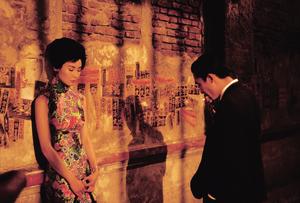 A digitally remastered version of Wong Kar-wai’s classic, In the Mood for Love, was screened at Busan International Film Festival recently. (PHOTO PROVIDED TO CHINA DAILY)
A digitally remastered version of Wong Kar-wai’s classic, In the Mood for Love, was screened at Busan International Film Festival recently. (PHOTO PROVIDED TO CHINA DAILY)
Rita Hui has a theory about how Hong Kong’s independent film industry will endure and then emerge from the pandemic that pretty much brought film production — everywhere — to a halt for the greater part of 2020.
“I think independent film has actually been more active than ever,” explains the independent Hong Kong filmmaker and educator. “It seems for commercial films it has been impossible to have a production but independent film has continued, with documentaries, and short films and plans for feature films. Independent filmmakers really want to have their voices heard so I think the past year has just made us work harder. We are more used to the struggle.”
In some ways, Hong Kong has been luckier than other global markets. Cinemas here have reopened, albeit with reduced capacities, whereas in many parts of Europe, such as Italy, they were shut down again recently as COVID-19 numbers spike.
A number of Hong Kong films have also continued to fly the flag at the world’s leading festivals — and will continue to do so, playing a major role when it comes to the programing of Asian cinema, according to festival representatives.
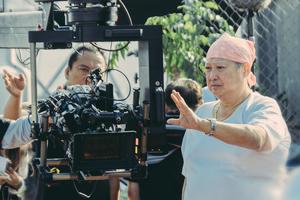 Sammo Hung’s film Exercise was screened at Busan International Film Festival recently, as part of the omnibus film, Septet: The Story of Hong Kong. (PHOTO PROVIDED TO CHINA DAILY)
Sammo Hung’s film Exercise was screened at Busan International Film Festival recently, as part of the omnibus film, Septet: The Story of Hong Kong. (PHOTO PROVIDED TO CHINA DAILY)
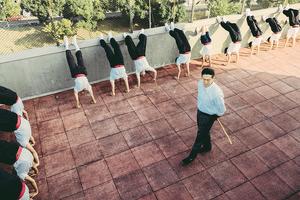 Sammo Hung’s film Exercise was screened at Busan International Film Festival recently, as part of the omnibus film, Septet: The Story of Hong Kong. (PHOTO PROVIDED TO CHINA DAILY)
Sammo Hung’s film Exercise was screened at Busan International Film Festival recently, as part of the omnibus film, Septet: The Story of Hong Kong. (PHOTO PROVIDED TO CHINA DAILY)
Hong Kong favorites
A case in point was last month’s Busan International Film Festival, hosted annually by the sprawling South Korean port city.
Arguably Asia’s largest film industry event, this year’s 25th edition of BIFF was scaled down in terms of audience numbers, films screened and related activities, but there were two new Hong Kong productions that featured prominently during its Oct 21-30 run, and an old favorite remastered for a new generation of film lovers.
Septet: The Story of Hong Kong, comprising segments paying tribute to the city created by seven of the city’s most famous directors — including Johnnie To Kei-fung, Sammo Hung Kam-bo and Patrick Tam Kar-ming — was BIFF’s opening film, having already been part of the Official Selection section at Cannes 2020.
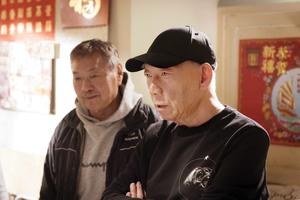 Yuen Wo-ping’s Homecoming figured in the seven-film omnibus by Hong Kong directors that opened Busan International Film Festival. (PHOTO PROVIDED TO CHINA DAILY)
Yuen Wo-ping’s Homecoming figured in the seven-film omnibus by Hong Kong directors that opened Busan International Film Festival. (PHOTO PROVIDED TO CHINA DAILY)
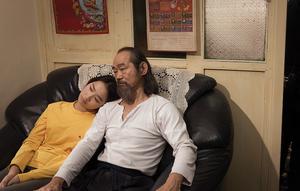 Yuen Wo-ping’s Homecoming figured in the seven-film omnibus by Hong Kong directors that opened Busan International Film Festival. (PHOTO PROVIDED TO CHINA DAILY)
Yuen Wo-ping’s Homecoming figured in the seven-film omnibus by Hong Kong directors that opened Busan International Film Festival. (PHOTO PROVIDED TO CHINA DAILY)
Veteran filmmaker Ann Hui On-wah contributed to Septet and had her new drama Love After Love make its Asia premiere, while the digital remastered version of Wong Kar-wai’s soulful romance, In the Mood for Love, rescreened 20 years on from its original screening in Busan.
“When the Busan International Film Festival was founded, Hong Kong was a country with a significant and notable film industry for Korea and Asia and internationally,” explains Park Sun-young, one of BIFF’s programers of Asian film.
“Hong Kong films have always been an essential partner to us. They have always been and will always be a great asset to film fans in Korea and Asia,” Park says, adding, “One of Hong Kong films’ strengths is that the great masters who led Hong Kong cinema in the 70s, 80s and 90s are still actively filmmaking and inspiring to this day. Their new films always have dedicated audiences.”
While Hui could not be in Busan physically due to travel restrictions, the filmmaker was there in spirit and in hope as she had her next production — a “modern take on martial arts” titled Castle Peak — down as part of the festival’s annual Asian Project Market.
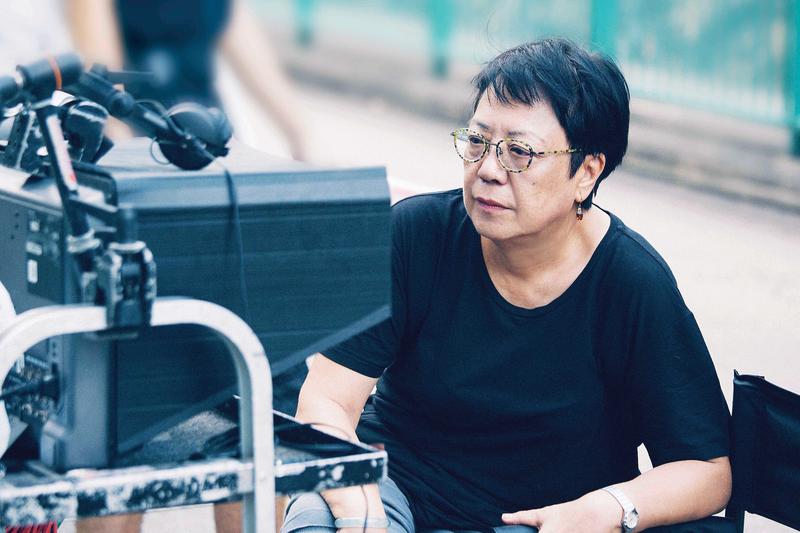 Ann Hui’s new drama film Love After Love made its Asia premiere at Busan International Film Festival. (PHOTO PROVIDED TO CHINA DAILY)
Ann Hui’s new drama film Love After Love made its Asia premiere at Busan International Film Festival. (PHOTO PROVIDED TO CHINA DAILY)
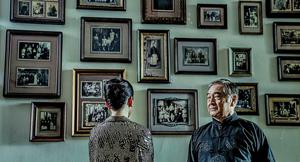 Ann Hui’s new drama film Love After Love made its Asia premiere at Busan International Film Festival. (PHOTO PROVIDED TO CHINA DAILY)
Ann Hui’s new drama film Love After Love made its Asia premiere at Busan International Film Festival. (PHOTO PROVIDED TO CHINA DAILY)
For independent filmmakers across Asia and their continuing struggle to find the cash they need to see their cinematic dreams realized, platforms such as the Asian Project Market are of vital importance. They help connect the dots — or, in reality, filmmakers with people who have the money to make things happen.
Combined with annual film funds — such as Hong Kong’s Film Development Fund and Busan’s Asia Cinema Fund — the Asian Project Market this year becomes even more important as the pandemic has shrunk the global economy, making investors even more wary than ever before.
“It’s important for independent filmmakers to have an exchange with the world outside Hong Kong,” says Hui. “The connections you can make are very important and the current climate, I would say, has made them even more important. It is tough in Hong Kong today, so you have to find a way.”
 Astray, directed by Ringo Lam, is part of Septet: The Story of Hong Kong, an omnibus film that made it to the Official Selection at Cannes 2020. (PHOTO PROVIDED TO CHINA DAILY)
Astray, directed by Ringo Lam, is part of Septet: The Story of Hong Kong, an omnibus film that made it to the Official Selection at Cannes 2020. (PHOTO PROVIDED TO CHINA DAILY)
Inspiring the young
Around 20,000 people actually made it into cinemas in Busan this year, in spite of government restrictions limiting theater capacity to 25 percent. A major positive takeaway was that global interest in Asian cinema continues to peak, following South Korean director Bong Joon-ho’s historic first Best Picture Oscar for the region last year for his darkly rich social satire Parasite.
The global festival buzz this year has been all about Korean-American director Lee Isaac Chung’s distinctly Asian domestic drama Minari, already reportedly under consideration for the Oscars and a huge hit with its audience in Busan.
There were no Hong Kong films in the running for BIFF’s major prize this year — the New Currents award for first or second-time Asian filmmakers. But inspiration for — and solidarity with — the city’s independent filmmakers was apparent.
 Filmmaker Rita Hui says in Hong Kong work on independent films has continued through the pandemic. (PHOTO PROVIDED TO CHINA DAILY)
Filmmaker Rita Hui says in Hong Kong work on independent films has continued through the pandemic. (PHOTO PROVIDED TO CHINA DAILY)
For instance, the Maung Sun-directed Money Has Four Legs — the first-ever production from Myanmar to be in the running for the major prize — is the story of a filmmaker battling the odds to get his first feature made.
While it didn’t win — the two prizes worth US$30,000 went to Japanese director Yujiro Harumoto’s schoolyard drama A Balance and Kazakhstani director Ruslan Pak’s murder mystery Three — Money Has Four Legs certainly provided a unique insight into the problems encountered by Asia’s independent filmmakers. The setting and the characters are distinctly Burmese but its themes regionally universal. Maung Sun said that even as he was making the film he had a feeling it would resonate with his peers across Asia.
“I didn’t really know how to get a film made but I knew that I would never get one made if I didn’t have (the) passion (for it),” said Maung Sun. “I think filmmakers all over Asia encounter similar problems, with funding, with actually finding a place to screen your film, and with finding the passion needed to get the work finished. Maybe if anyone gets to see my film they might feel encouraged.”


